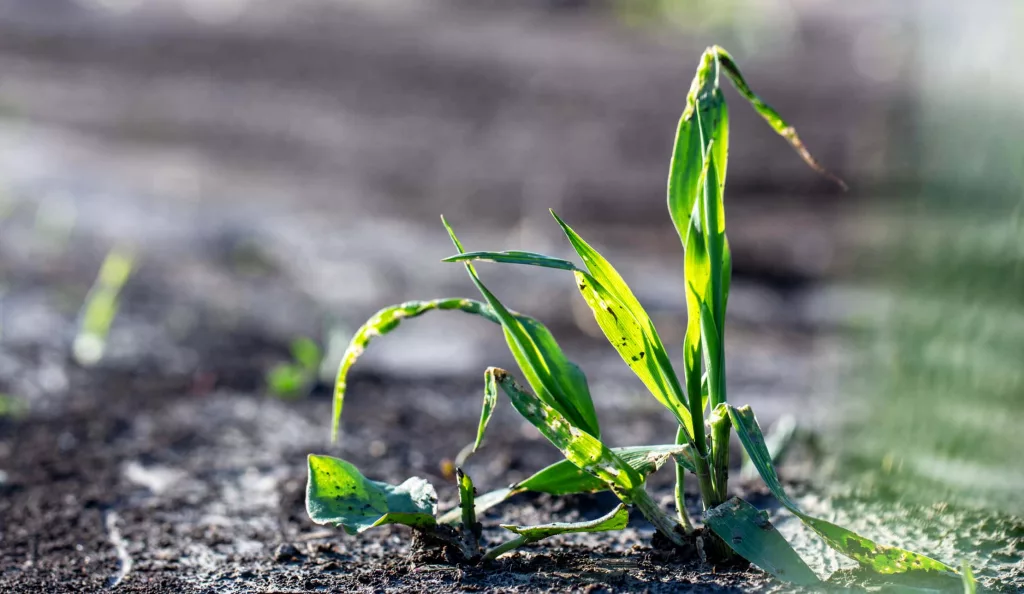If you think the seemingly non-stop rain has been a pain in your side, imagine the plight of Michigan farmers who have been kept on the sidelines waiting desperately to get crops planted, but faced with soggy fields and running out of time at best, or devastated at worst. Michigan Gov. Gretchen Whitmer isn’t standing on the sidelines any longer. She has asked the federal government for a disaster designation for the entire state.
The Michigan Agri-Business Association today has applauded the Governor’s request to United States Department of Agriculture (USDA) Secretary Sonny Perdue for a USDA Secretarial Disaster Designation for the entire state of Michigan to provide relief to farmers who have been impacted by historic rainfall, resulting in modern day record-low planting and delayed planting of agricultural crops all across the state.
Jim Byrum is President of the Michigan Agri-Business Association (MABA). He says, “Ongoing trade disputes and record rainfall have put Michigan farmers and agribusinesses in a very difficult predicament with crop planting significantly behind schedule,” and adds, “We applaud Gov. Whitmer for seeking much-needed relief for our farmers and agri-businesses and urge Secretary Perdue to swiftly approve the governor’s request for disaster relief.”
According to USDA Crop Progress Reports, only 63-percent of Michigan’s corn was planted as of June 9th and only 43-percent of soybeans had been planted.
Estimates suggest final acreage of corn and soybeans may be reduced by as much as 20-percent of the intended acreage because of the extreme weather. The magnitude of the losses producers and businesses will experience are far from being finalized as market prices continue to adjust, but they will only partially offset losses.
Tim Boring is Vice President of MABA. He contends, “There are some farmers who will find it very difficult to continue farming,” and adds, “It is not just a crop issue as livestock and dairy farmers are facing higher feed costs, and in some cases, will have difficulty finding feed as fall approaches.”
Gov. Whitmer made the request for aid in a letter yesterday to the USDA. She also requested added flexibility under the Federal Crop Insurance Program so Michigan farmers can plant or switch to forage or cover crops on prevented plant acres to allow them to utilize those crops while they still have high nutritional value.
Byrum says, “This situation is creating significant disruptions in the industry as farmers try to manage their crops amid ongoing rain, deal with fields where crops have not been planted and prepare for potential problems with the quality of their crops at harvest.”
UPDATE+++++UPDATE+++++UPDDATE+++++
One day after Gov. Gretchen Whitmer sent a letter to U.S. Agriculture Secretary Sonny Perdue requesting relief for Michigan farmers facing overwhelming challenges during one of the wettest periods on record in the state, the U.S Department of Agriculture announced it will provide flexibility within Federal Crop Insurance by allowing farmers to hay or graze cover crops planted on prevented plant acres on September 1st, 2019. The Department also announced that the Farm Service Agency will be extending the deadline to report prevented planting acres in select counties.
Gov. Whitmer says, “This is a win for farmers across our state who are in the midst of one of the toughest periods for farming in Michigan history,” adding, “I’m glad the federal government has recognized the importance of Michigan’s agriculture industry to our families and our economy, and I encourage Secretary Perdue to continue providing support by approving a USDA Secretarial Disaster Designation for the State of Michigan and ensuring that all Michigan farmers are eligible for the disaster assistance recently approved by Congress.”
Additionally today, the State of Michigan announced a $15 million program that allows financial institutions to make low-interest loans to farmers, growers, processors, and farm-related retailers. The State will pay the loan origination fees to reduce the cost the loans to farmers and provide them with support during this period.






